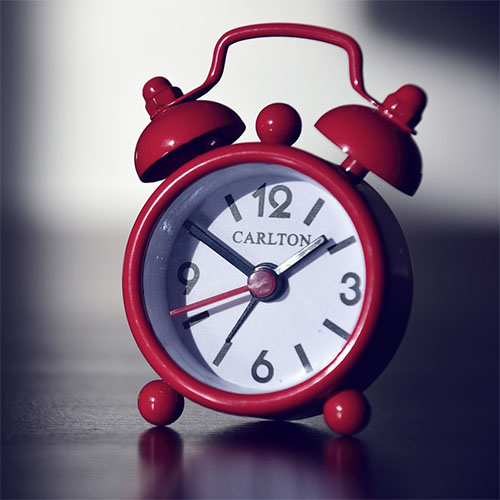What does it mean to take personal responsibility? And perhaps more importantly, what does it require of us?
It is easy – and often familiar – to come at the world from a place of being constantly “at the effect” of the things that happen in it. This includes events over which we feel powerless, a victim of circumstance, as well as things that make us angry and for which we actively blame others, seeing them as the cause of our suffering or discomfort. A victim stance may involve the belief that we always lose, while others always win. An angry and aggressive stance tends to focus on our desire to win at all cost, regardless of anyone else.
Interestingly, both of these attitudes toward the world give away our personal power by assigning agency outside ourselves. In one, we feel powerless (expressed as helplessness) and may blame ourselves; in the other, we feel powerless (expressed as anger) and blame others while aggressively attempting to rebalance the scales by trying to “win” or prove our point or “get ours.”
Taking Responsibility, Step #1: Own Your Personal Power
A more challenging – and in many ways rewarding – approach toward life is one in which we view ourselves as being “at the cause” of the things that happen in it. This requires us to move past blame and into the realm of personal responsibility. Whether we then choose to put others first as part of a core value of service, simply refrain from begrudging anyone else their bounty, actively look for ways in which everyone can win in any given situation, or recognize that winning and losing are utterly irrelevant, we cannot do any of it without first recognizing and choosing to act on our personal power.
Easily said, but this shift can be more difficult and uncomfortable than many people realize.
It is comfortable to avoid or shift blame, whether as a victim of circumstance (“I am the helpless victim here; there is nothing I can do”) or a fighter engaged in a self-righteous struggle with an assailant (“I am not to blame; they are!”). When we allow ourselves to stop at the idea that it is someone (or something) else’s fault, we are relieved of responsibility to act in any sort of mindful way.
The instant we acknowledge that we have any sort of choice in a situation – whether over the actual circumstances themselves or simply in how we respond to them – we have stepped into the realm of personal power and with it, personal responsibility.
In assuming personal responsibility, however, we are left with a dilemma: What do we do with all that blame that was lying around?
Blame and Personal Responsibility
Blame is defined as “responsibility for a fault or wrong.” For many people, accepting blame is associated with admitting to being flawed, which can feel unacceptable and is one of the major reasons for blame shifting. In these cases, blame is often closely associated with shame, “a painful feeling of humiliation or distress caused by the consciousness of wrong or foolish behavior.”
For others, assigning blame may be taken to indicate that the person blamed is unworthy of respect, or it may mean a shift in power such that the person blamed is “one down.” An article by Aaron Lazare in Psychology Today entitled “Go Ahead, Say You’re Sorry” examines the power dynamics involved in apologies, which often involve accepting blame.
Clearly, what at first appears to be the simple act of taking responsibility drops us into a simmering cauldron of potent emotions and complex power dynamics. It is not a simple or straightforward shift to make. This is especially true if we have a life-long habit of assigning blame and we harbor a whole slew of judgments to go along with it.
What if we decide to take responsibility for our own life and actions and something goes wrong? What do we do with all the anger and anguish and blame that might arise? If we’re taking responsibility, are we supposed to just absorb it?
This is potentially scary stuff, and we may or may not have spent much time to date developing the habits and resources we’ll need if and when things go awry. If (or more accurately when) that does happen, it might be easy to drop back into old habits. How do we not do that?
Digging at the Roots
We can start by examining our views on blame and power. This can start with some digging into where we got our ideas about shame, blame, and power in the first place.
For example, did we grow up in a family where humiliation was a control tactic, part of the air we breathed? In this case, our very self-worth may be intricately tangled up in the slightest indication that we played any part in a situation. The act of avoiding responsibility may have been a useful survival mechanism. The question, of course, is whether – and if so, specifically how and when – it still serves us today. The goal in the end is to be able to discern and consciously choose our approach.
It may also be helpful to pay attention to how it all makes us feel today when it’s happening. Does taking responsibility threaten or create cognitive dissonance in relation to our self-concept, as Brett and Kate McKay examine in their Art of Manliness blog post on owning up to mistakes?
Do we perhaps have people in our lives who look for any sign of weakness, so they can do their own blame-shifting and finger pointing? This can make it more difficult as well, since the slightest shift toward taking personal responsibility can be pounced on as “proof” that “it’s your fault.”
Rebuilding Toward a Vision of Personal Responsibility
Once we have an idea of where our views and habits come from, we can begin to work with them and develop new ones. Fundamental to this is recognizing the power of taking personal responsibility.
The process starts with self-awareness, kindness, and a commitment to personal growth. As described on the Respect Yourself web site, “See yourself clearly. Taking responsibility means acknowledging both your weaknesses and strengths ….A responsible person…has a complete picture of who she is. A responsible person continues to grow emotionally.”
As for power dynamics, Brené Brown has done a lot of powerful and well-articulated work around reconciling the concepts of vulnerability and strength, the model for which is fully applicable here. Having the courage to “show up” requires commitment and courage. In his Psychology Today article, Aaron Lazare observed that “apology is a show of strength. It is an act of honesty because we admit we did wrong; an act of generosity, because it restores the self-concept of those we offended. It offers hope for a renewed relationship and, who knows, possibly even a strengthened one. The apology is an act of commitment because it consigns us to working at the relationship and at our self-development. Finally, the apology is an act of courage because it subjects us to the emotional distress of shame and the risk of humiliation, rejection, and retaliation at the hands of the person we offended. All dimensions of the apology require strength of character, including the conviction that, while we expose vulnerable parts of ourselves, we are still good people” (emphasis added).
Similarly, assuming personal responsibility for one’s life and one’s own agency within it requires all of these same traits. After all, once we do, regardless of what happens, we are acknowledging that the buck stops here.
The benefits of doing this work are numerous, as eloquently outlined by Brett and Kate McKay in their follow-up article to the one mentioned above.
At the Core: Self-Acceptance
Taking a position of agency in our own lives and assuming personal responsibility brings us face-to-face with our own shadow side, as well as our greatest strengths. In stepping into a place of personal power, we are required to accept both our best traits and qualities and our own ability to be dark and hurtful. We are forced to recognize that our “enemies” are our mirrors just as much as our dearest friends – and vice versa.
In other words, we are human.
Until we recognize ourselves as capable of the whole human spectrum of emotions, thoughts, and behaviors and find a way to love ourselves with unconditional compassion, we will forever be holding ourselves back from taking full responsibility, looking for someone or something to shoulder the blame for those qualities and outcomes we prefer not to acknowledge or experience.
This article is the third in what I’m thinking of as my “Discomfort Series.” The first was Frustration: The Invisible Trigger and the second was Rethinking Stress – It’s Not All Bad, which are also available on my blog. Why a Discomfort Series? I’m a big believer in self-awareness, and taking a mindfulness approach toward life means coming to a place of peace with our full range of human emotions, including the uncomfortable ones. In this series, I plan to take a look at some of the emotions that can give us a hard time when it comes to truly being our whole self. I welcome your feedback and input as I develop this series! Please drop me a line any time.



